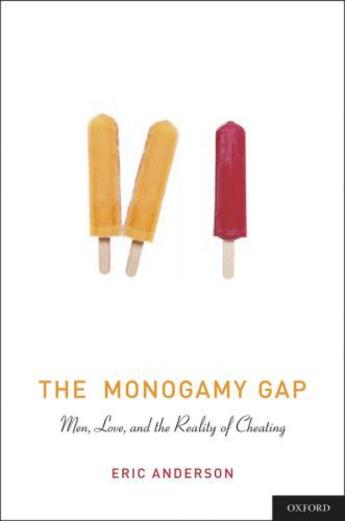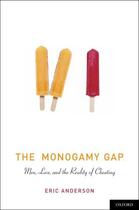Résumé:
Whether straight or gay, most men start their relationships desiring monogamy. This is rooted in the pervasive notion that monogamy exists as a sign of true love. Yet despite this deeply held cultural ideal, cheating remains rampant. In this accessible book, Eric Anderson investigates why 78% of... Voir plus
Whether straight or gay, most men start their relationships desiring monogamy. This is rooted in the pervasive notion that monogamy exists as a sign of true love. Yet despite this deeply held cultural ideal, cheating remains rampant. In this accessible book, Eric Anderson investigates why 78% of men he interviewed have cheated despite their desire not to.
Combining 120 interviews with research from the fields of sociology, biology, and psychology, Anderson identifies cheating as a product of wanting emotional passion for one's partner, along with a steadily growing desire for emotionally-detached recreational sex with others. Anderson coins the term "the monogamy gap" to describe this phenomenon.
Anderson suggests that monogamy is an irrational ideal because it fails to fulfil a lifetime of sexual desires. Cheating therefore becomes the rational response to an irrational situation.
The Monogamy Gap draws on a range of concepts, theories, and disciplines to highlight the biological compulsion of our sexual urges, the social construction of the monogamous ideal, and the devastating chasm that lies between them. Whether single or married, monogamous or open, straight or gay, readers will find The Monogamy Gap to be an enlightening, intellectually compelling, and provocative book.
Donner votre avis









